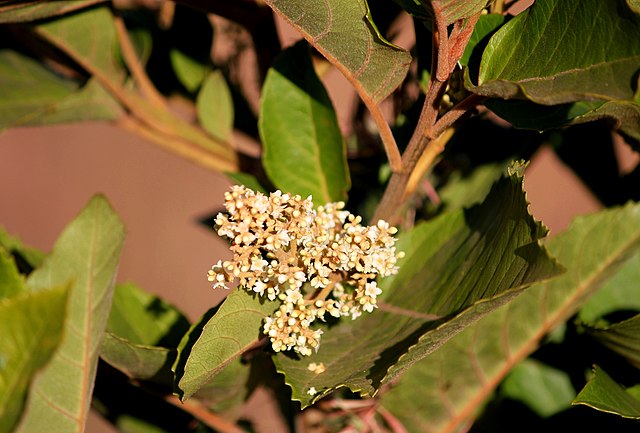|
Primulaceae |
|
|
Cuccuini, P. & M. Thulin (2006) Primulaceae & Thulin, M. Myrsinaceae in Flora of Somalia 3: 18-25 Plants herbs, subshrubs, shrubs, trees or woody climbers, sometimes with secretory ducts or cavities with resins. Leaves usually alternate, opposite, whorled or sometimes all basal, without stipules; blades simple, entre or toothed, sometimes with visible glandular dots of streaks, or glandular hairy. Inflorescences axillary or terminal, panicles, umbels, racemes, heads or of solitary flowers. Flowers radially to somewhat bilaterally symmetric, usually bisexual, sometimes unisexual, if bisexual sometimes heterostylous; sepals (3-)4-5(-9), usually united at the base, forming toothed calyces; petals (3-)4-5(-9), usuallly united and formaing a corolla with imbricate, convolute or valvate lobes, rarely corollas absent; stamens equal in number to the corolla lobes and opposite them, attached to the corolla; anthers with 2 thecae, opening by longitudinal slits or apical pores; ovaries superior to half inferior, 1-celled, with few to many ovules on central placentae; styles terminal, simple; stigmas capitate, lobed, or disc-shaped. Fruits often capsules, opeining by valves or teeth or sometimes circumscissile or indehiscent or 1-few seeded drupes or berries; seeds with straight embryos and with endosperm. The family Primulaceae is now interpreted as including the Myrsinaceae. One result is that it now includes 58 genera and around 2615 species. The expanded family is cosmopolitan in distribution. The description above and the key to the genera in Somaliland and Somalia have been developed from the two treatments cited. ©Trustees of the Royal Botanic Gardens, Kew. Reproduced with permission. References Cuccuini, P. & M. Thulin (2006) Primulaceaen Flora of Somalia 3: 20-25. Trustees of the Royal Botanic Gardens, Kew, Richmand, Surrey, UK. <Thulin, M. Myrsinaceae in M. Thuln (Ed.) Flora of Somalia 3: 18-20. Trustees of the Royal Botanic Gardens, Kew, Richmand, Surrey, UK. |
|

